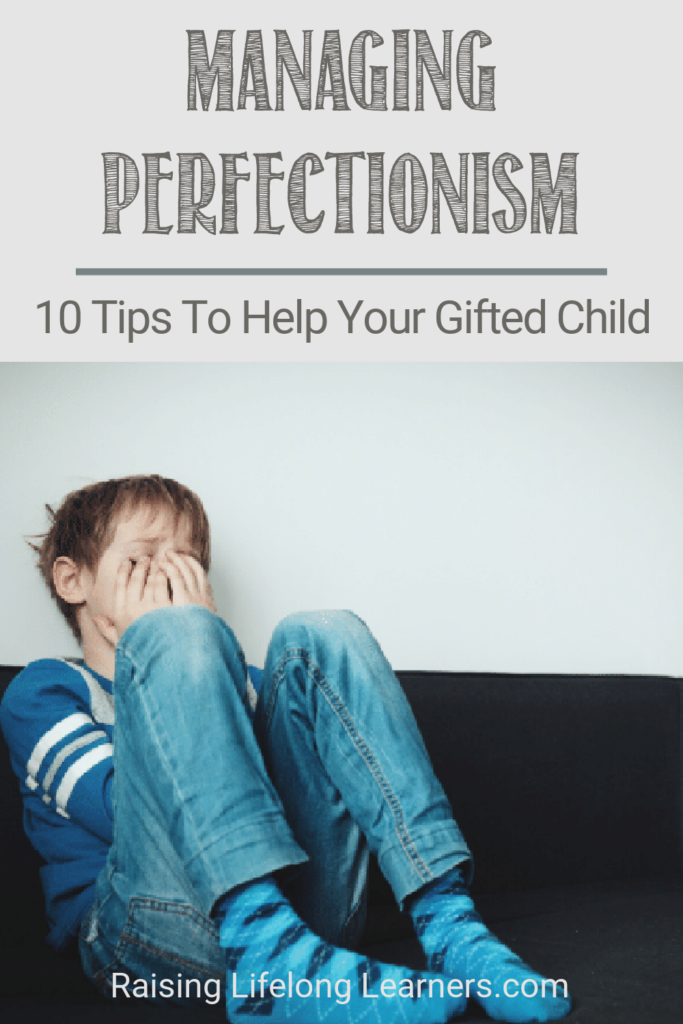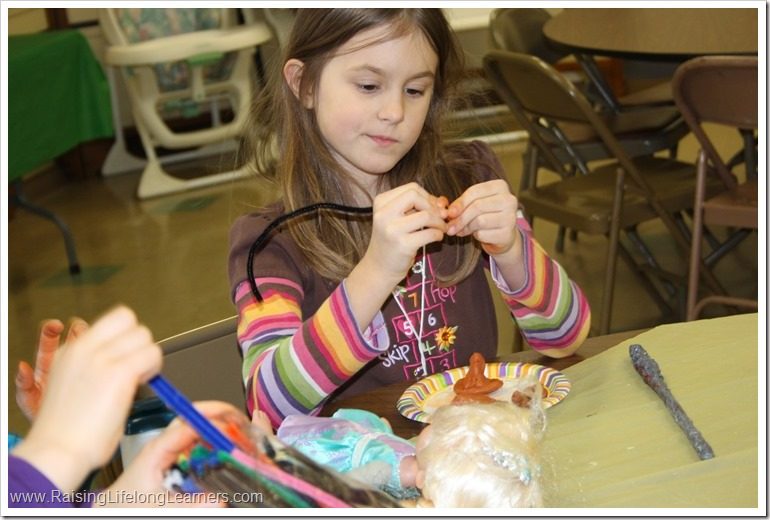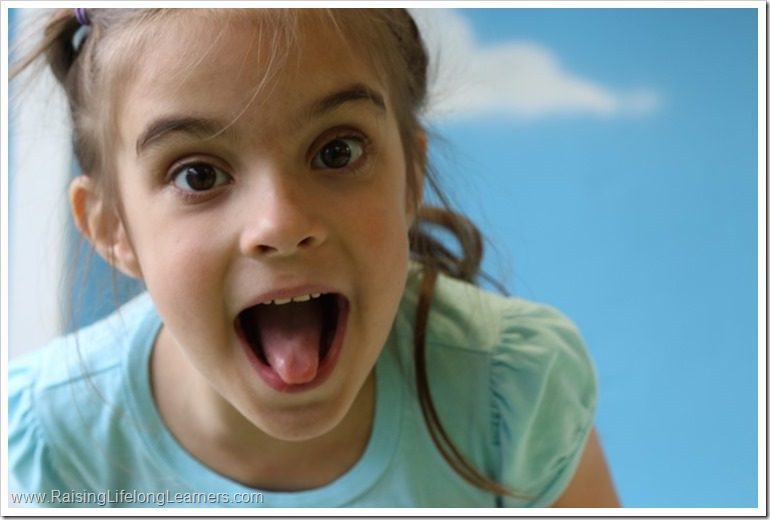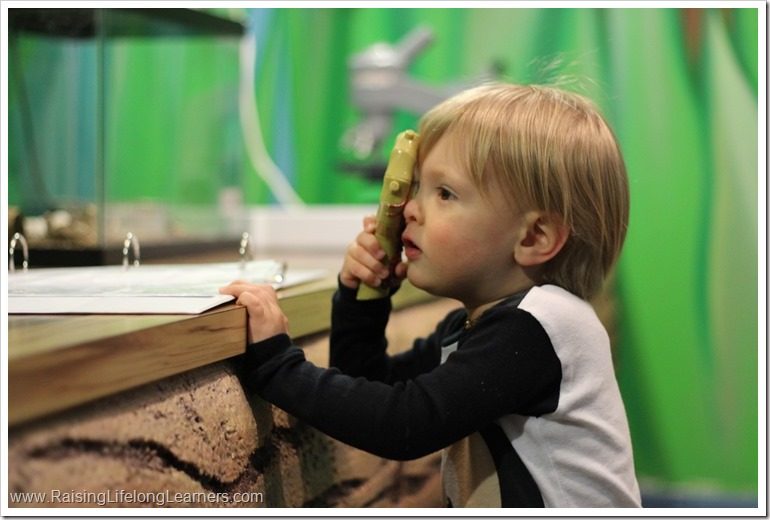Managing Perfectionism: 10 Tips for Helping Your Gifted Child
As parents, we want our children to excel. We want them to strive for excellence, and to feel accomplished with a job well-done. Whether it’s their education, music lessons, dance, performance, or any other skill they’re pursuing, we teach our kids to aim high and master new things from an early age.
Gifted children know this expectation well. Because they rarely struggle with anything they attempt early on, we set high standards for them. After all, striving for perfection in the sense of learning to excel can be healthy and admirable. We just want our children to succeed.
The Unhealthy Side of Perfectionism
But, when reaching for perfection turns compulsive, it becomes an unhealthy struggle. And this type of pervasive perfectionism can become debilitating to a gifted child. Gifted perfectionists can be unsatisfied with their performance on anything – even when they’ve done beautifully.
My son has been taking flute lessons for a little over a year and a half. When he went in for his first “try out” and tested different band instruments to see what he was most suited to play, he was told that he had a natural ability, and could play whatever he wished. He chose flute.
At first, he practiced well and often, but as time has gone on, and the pieces have become more challenging, he’s pulled back. I know that it’s because he’s afraid he’ll fail. He has been told since the beginning that he is a natural, and so with every failed note, he feels increasingly devastated and angry.
That amazing solo happened because neither his teacher, nor his parents {us} allowed him to quit. He told us over and over again that he wasn’t going to perform. He argued that he’d been practicing the song for a year and still didn’t get it right every time. But we wouldn’t back down because he needed to play the song. He’d worked hard, and would be sitting in a gymnasium with other 5th and 6th grade musicians, none of whom practice perfectly every time. And almost every one of them was performing a solo.
He nailed it. And once he did, and heard the applause, his whole demeanor changed. He sat straighter. He clapped harder for his friends. And he smiled through the rest of the concert.
And then he fought me again the next day as we tackled a math concept that was new to him.
When Perfectionism Leads to Underachievement
Perfectionism is different than the motivation for excellence. The dissimilarity keeps gifted perfectionists from every completely feeling good enough about themselves. It keeps kids from taking risks. They become so afraid of failure that they avoid work, play, and new experiences altogether.
I still get this way as a perfectionistic adult. I get anxious and procrastinate on tasks or projects I have coming up when I’m afraid I won’t be able to meet my own high standards. I’m speaking about giftedness and managing intensity in a few weeks, and still haven’t put together my talks, slides, and handouts. It’s not because I don’t know the topics inside and out – I live those topics on a daily basis!
I just don’t want to let my audience down. I’m headachy and nauseous when I think about it. I love speaking. I love writing. And I’ve done it for years – and get myself worked up each and every time because I care so much about creating the perfect experience for others.
I know exactly how my son feels.
I know how your gifted perfectionist feels. He might seem depressed or avoid basic work, making excuses and blaming others for his lack of follow-through. He may become defiant or rebellious.
Perfectionism And The Gifted Child
Unhealthy perfectionism affects the child {or adult} physically, emotionally, and intellectually. But it also affects his family and friends. Perfectionists may subtly cause others to feel down about themselves by pointing out their flaws and mistakes in an attempt to make themselves feel better.
One of my children is constantly pointing out a sibling’s flaws, and offering unsolicited advice. It’s not warranted, and all it does is make the recipient feel less perfect than the advice-giver. And the advice-giver feels more important, smarter, etc.
Giving others unsolicited advice reassures gifted perfectionists of how intelligent they really are. Causing others to feel bad has an unconsciously confirming effect on their own perfectionism.
10 Tips For Helping Your Gifted Child Manage Perfectionism
So, as parents who want our gifted kids to reach their potential and excel, without becoming unhealthy in their quest for perfection, how can we help them manage?
1. Let them hear about your mistakes.
Kids who struggle with perfectionism often think others are perfect. Talk to them about your failures and the lessons you’ve learned from them. When I taught gifted children in the public schools, I started the year by going into all of the third grade classrooms and reading excerpts from the book, Mistakes That Worked. In that book, inventions that were created from someone’s failures are profiled. The Frisbee, Toll House chocolate chip cookies, and Post-It Notes are some of the amazing things discussed in that book.
Sometimes the best learning happens from the biggest failures. After we discussed the books, their classroom teachers each shared a story of failure from their own lives. It was powerful, and enlightening. The kids loved it.
2. Teach them to practice… and to lose.
Many things come easy to gifted kids, so by the time they find something that’s hard, they give up rather than fail. Find something they’ll have to work at – an art class, horseback riding, stop motion animation – and sign them up. Practice with them between sessions. Teach them that great things come through hard work.
Then, teach your kids to lose. Play games with them, starting with games of chance and moving onto skill-based games. Celebrate gracious losing.
3. Focus on the process, not the product.
Too often, perfectionistic kids have an idea of what something should look like when it’s done. Their picture may or may not match up with reality. Throughout the process of their work, ask them questions and offer compliments. When they’re done, ask questions. “What made you use that color?” “How did you come up with this idea in the first place?”
4. Explain your expectations, and stick with them.
Gifted kids are literal and need to know up front what it means to be done with a project. What does a great journal entry look like? How do we measure success on the ball field? What should his flute practice include? Tell your literal-minded kiddo what to expect and tell him to stop when he gets to that point. Use a time limit if necessary.
5. Be silly sometimes.
Gifted and perfectionistic children can be so hard on themselves. Take time to laugh with each other – especially when mistakes are made. Practicing how to take falls, trying flips on the trampoline, and watching silly shows on television all help draw families closer together and remind kids to enjoy moments… and that everyone fails.
6. Talk about your own struggles.
If you’re a perfectionist too like I am, talk to your kids about it. I just chatted over Starbucks with my son about how I struggle when I have too many things on my plate. I get overwhelmed, think I can’t do it all perfectly, and just want to give up altogether. When he knows that I struggle with paralyzing perfectionism, too, he doesn’t feel so alone.
7. Break routines from time to time.
Like all children, the perfectionist craves routine. Help them see that the occasional break from routine is okay. If you’re in a hurry to be somewhere, model that it’s okay to let some chores go until later. If you always let your kiddo read before bed, but you got home really late, have them go to bed without reading from time to time. Teach them that routines and structures are meant to help us focus our days – not become slaves to them.
8. Make and progress towards goals.
Help your child see the bigger picture, and realize that mistakes and trip-ups are part of the journey. Start by having them think about things they want to achieve and break it down for them. For example, if your child wants to write and self-publish a book, have him first set the small goal of outlining his story. Then, have him set and meet the goal of writing the first chapter. Keep going like this in small intervals, helping your child see that there are many steps to ultimate goals, and nobody get there right away.
9. Enjoy a state of rest.
Many kids get more worked up over their perfectionism when they over-extend themselves. Make sure that everyone is well-rested and takes good care of their physical needs. Set aside time to eat together as a family and reconnect. Include quiet down time in your day for kids and adults of all ages – we all need downtime.
10. Be a role model for healthy excellence.
Take pride in your work and don’t hide your mistakes or criticize yourself aloud. Congratulate yourself when you’ve done a good job, and let your children know that your own accomplishments give you satisfaction. Don’t overwork. You, too, need to have some fun and relaxation.
If your child’s perfectionism is getting in the way of normal activities and preventing him from getting involved in new activities, or if your child shows symptoms of anxiety related to perfectionism, like stomachaches, headaches, or eating disorders, you may want to get professional psychological help for your child and your family. Seeing a psychologist or a family counselor can help give you the tools to get your kiddo and yourself back on track.
Do you or your child struggle with perfectionism? What are some of the successful ways you’ve tackled the problem?
An additional resource to help you as you help your child with perfectionism –
Never Good Enough: How Perfectionism, Anxiety, and Fear are Holding Back Your Child and What to do About it
Get all the details about Never Good Enough, by Colleen Kessler HERE.







